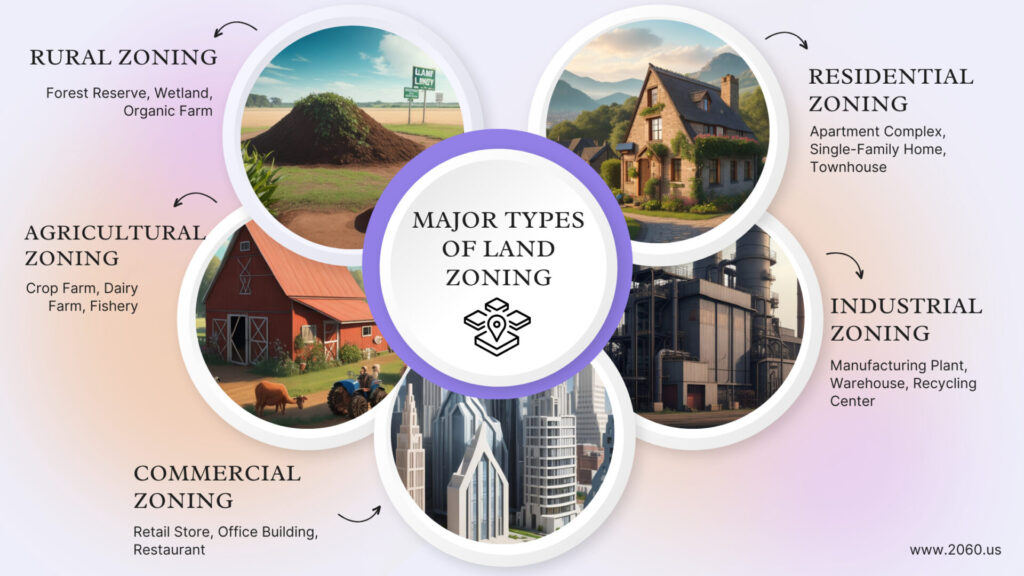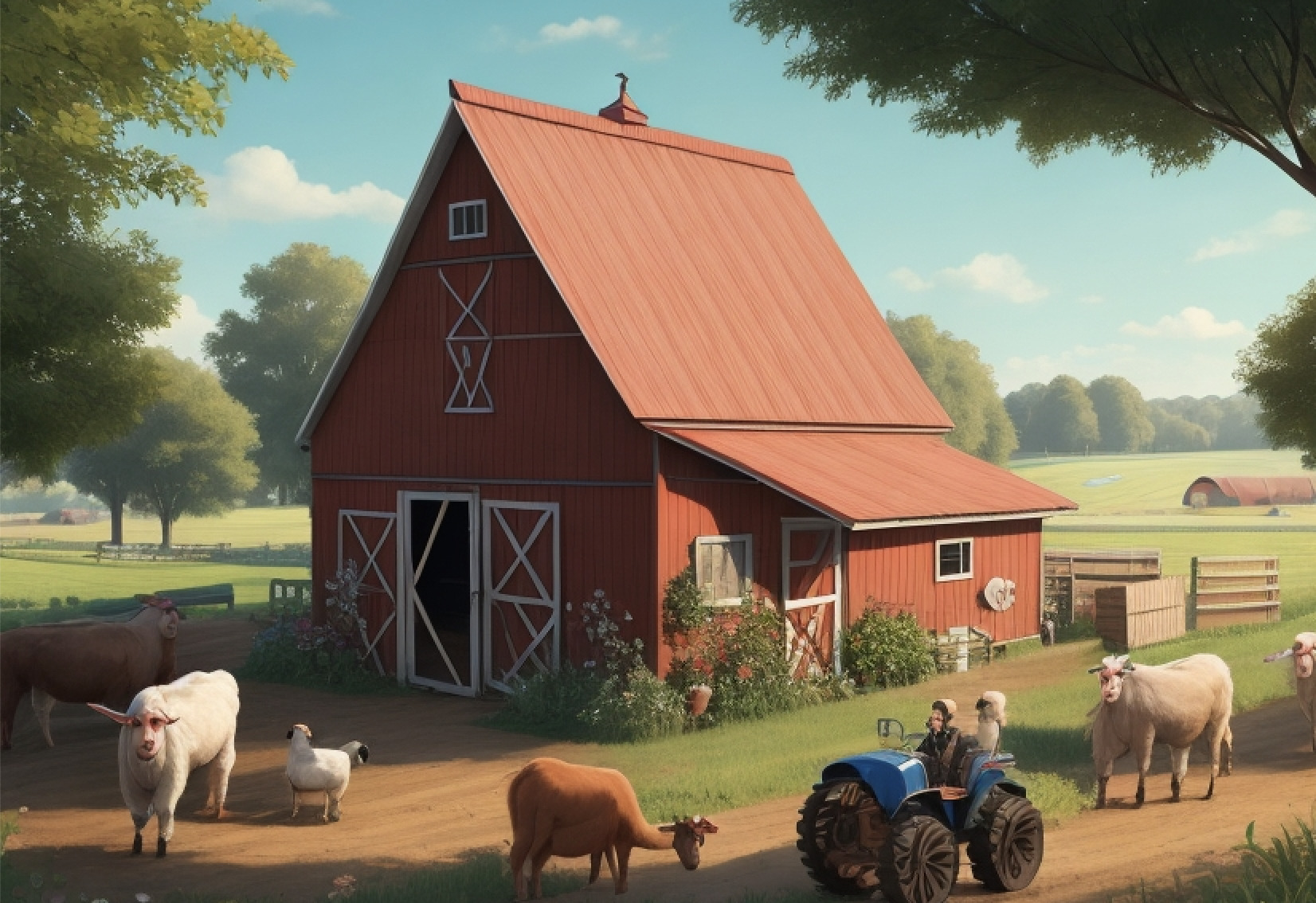Land zoning is the system that local governments use to decide what can be built where. It sets rules for things like whether an area can have houses, stores, or factories. Zoning is a huge deal when it comes to buying and developing land.
Why Zoning Matters for Real Estate Investing
1) Zoning Affects Land Value and Development Potential
Zoning shapes what you can build on a property. It balances safety and good city planning. Zoning aims to avoid overcrowding or environmental harm. It also guides economic growth by allowing greater density in some areas. Zoning protects wetlands and green spaces for future generations.
So zoning affects land value and what developers can build. It reduces surprises during the approval process. Understanding zoning helps pick land with the right potential. It also helps get zoning changed if needed.
2) Zoning Minimizes Risks and Maximizes Returns
Knowing the zoning rules allows investors to assess risks and returns accurately. It helps ensure the land can be developed as envisioned. This minimizes risks of denied permits or other roadblocks. It also unlocks the full profit potential of the site.
Get your free guide “Passive Real Estate Investing For Busy Professionals”
Who Controls Zoning Rules?
Local city or county governments handle zoning in their area. They draw boundaries for residential, commercial, and industrial uses. Governments decide what can be built in each zone. This includes things like height limits and distance from the street.
They permit special uses if the owner makes a good case. The aim is balancing community interests with private property rights.
Developers must get zoning approval to build on land. They submit permit applications to the local zoning board. Public hearings allow community input. Zoning officials then vote to approve or deny the project plans. Developers may need to appeal denials or request variances.
Major Types of Land Zoning

Land zoning is an essential aspect of urban planning that regulates land use and development. Understanding the different types of zoning is crucial for real estate investors, developers, and city planners. Here are the five principal categories of land zoning:
Residential Zoning
Residential zoning is primarily concerned with controlling the density and types of housing within a specific area. It aims to foster community development while ensuring safety and aesthetic appeal. Regulations often stipulate the size of buildings, the number of parking spaces required, and the types of landscaping that are permissible. This type of zoning also dictates where high-density housing like apartment complexes can be located.
Industrial Zoning
Industrial zoning is designed to segregate factories, manufacturing plants, and other industrial operations from residential and commercial areas. This is crucial for minimizing noise pollution and other environmental impacts. Regulations often specify the types of businesses that can operate in these zones and impose limitations on building sizes. Proper industrial zoning is vital for encouraging economic growth while mitigating the effects on nearby homes and educational institutions.
Commercial Zoning
Commercial zoning designates specific areas for retail businesses and office spaces. It aims to strike a balance between the needs of businesses and the concerns of residential communities. Regulations in commercial zones often cover aspects like noise levels, pollution control, accessibility, and landscaping requirements. Additionally, there are usually restrictions on building heights and lot sizes to prevent excessive development and congestion.
Agricultural Zoning
Agricultural zoning is intended to support and sustain long-term farming activities. It facilitates efficient planning for food production and helps in the conservation of agricultural land. This type of zoning also aims to prevent soil erosion, water runoff, and loss of natural habitats. As the climate and global population continue to change, agricultural zoning becomes increasingly important for ensuring food security.
Rural Zoning
Rural zoning focuses on the conservation of farms, forests, and wetlands. It aims to guide the growth of rural businesses while preserving the unique character of rural communities. Regulations often keep buildings at a safe distance from flood-prone areas and regions susceptible to wildfires. Rural zoning also discourages overcrowding and urban sprawl, and may offer incentives for sustainable land management practices.
Understanding these zoning types is crucial for making informed decisions in real estate investment and urban development. Each type serves a specific purpose and comes with its own set of regulations that must be carefully considered.
Click here to learn more and subscribe to the newsletter
Key Zoning Rules Investors Must Master
To ensure that you’re in full compliance with local laws and to successfully finalize your raw land transaction, it’s crucial to familiarize yourself with the five key zoning regulations commonly employed by governmental authorities.
Allowed Building Types: This pertains to the specific kinds of structures that can be built in a designated zone. This could range from residential houses and commercial retail stores to industrial warehouses.
Utility Line Placement: Rules surrounding this dictate where utility lines can be placed and the proper installation methods that must be followed.
Accessory Structures: Zoning may include restrictions on additional structures like buildings, as well as setbacks from streets and property boundaries.
Building Dimensions: Zoning rules often specify the allowed size and height of structures. These specifications can range from floor-to-area ratios to maximum height limitations.
Room Count Limitations: Some zones might impose restrictions on the number of rooms a structure can have, based on its size and intended use.
Being well-informed about these local zoning ordinances is vital, as they can significantly impact the land’s value and are important considerations for homebuilders during the development phase.
Conclusion
Zoning is vital in real estate for determining land value, development scope, and investment gains. Governed by local authorities, it regulates land use to balance community needs and economic growth. Public hearings and community input play a role in shaping these regulations. Understanding zoning helps investors identify lucrative sites, streamline approvals, and mitigate risks. Being well-versed in zoning can also expedite the process of obtaining variances or appealing denials. Different zoning types serve specific land uses, and expertise in this area can significantly benefit investors. In essence, mastering zoning can unlock a property’s full potential, offering a competitive edge in profitable and sustainable land development. Investors equipped with zoning knowledge can seize opportunities that others may overlook, transforming undeveloped land into thriving communities.
Interested in multifamily real estate investing? Our experienced team is here to help. From market research to identifying the best opportunities, we guide you through the process. Subscribe to our YouTube channel for informative videos and expert discussions, and follow us on Instagram for exclusive content. Explore our comprehensive Udemy course for detailed insights and strategies. Ready to elevate your investment journey? Contact us now to schedule a consultation and achieve your financial goals in real estate.
*This content is for informational purposes only and is not intended as financial or legal advice. Please consult with a professional advisor before making any investment decisions.




























